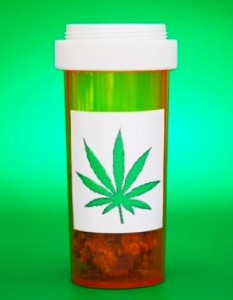 Like WF on Facebook | Follow WF on Twitter ALS is a neurological disease that causes the body’s motor neurons to degenerate and die, resulting in a loss of muscle movement control and eventual muscle atrophy. Those who suffer from the disease experience a number of symptoms ranging from cramps and twitching to muscle weakness and depression. Once symptoms of ALS appear, the large majority of victims usually dies from respiratory failure, often within three to five years.
Like WF on Facebook | Follow WF on Twitter ALS is a neurological disease that causes the body’s motor neurons to degenerate and die, resulting in a loss of muscle movement control and eventual muscle atrophy. Those who suffer from the disease experience a number of symptoms ranging from cramps and twitching to muscle weakness and depression. Once symptoms of ALS appear, the large majority of victims usually dies from respiratory failure, often within three to five years.
Over the past few weeks, the Ice Bucket Challenge has promoted awareness for ALS and has raised over $15 million in funding for the ALS Association. The challenge has attracted attention from many notable celebrities, public figures, and even a few politicians. However, as awareness burgeons, many remain unmindful of the significant benefits that cannabis has in treating ALS and the continued governmental restrictions that impede research and treatment.
A number of studies have shown that cannabis functions in many ways that are beneficial to those with ALS, from serving as an analgesic to acting as a soothing muscle relaxant. Cannabis also functions as a saliva reducer, and so it has the ability to reduce symptoms of uncontrollable drooling that is common among those with ALS. Additionally, cannabis has been found successful in use as an antidepressant, results which have also been confirmed by an anonymous, self-reported survey of ALS patients conducted by the the MDA/ALS Center at the University of Washington.
Most importantly, however, is that a 2010 study found that cannabis offered anti-oxidative, anti-inflammatory, and neuroprotective effects when tested on laboratory mice. The researchers found that cannabis slowed the progression of the disease and prolonged cell survival, ultimately concluding that “it is reasonable to think that cannabis might significantly slow the progression of ALS, potentially extending life expectancy and substantially reducing the overall burden of the disease.”
While this information may seem incredibly relieving to anyone who suffers from ALS, only 34 percent of Americans live in the 23 states, and the District of Columbia, that currently recognize the important medical uses of cannabis. Nonetheless, many who suffer from ALS choose to rely on scientific evidence rather than government directives and thus have chosen to self-medicate, albeit illegally. Unfortunately, that has forced some to come to face with the law in their efforts to stay alive.
In February 2013, the Manatee County Sheriff’s Department deputies were called to Cathy Jordan’s Florida home after a realtor noticed a marijuana plant in her garden. When police arrived, they confiscated 23 marijuana plants which Jordan had used to treat her ALS symptoms. Fortunately for Jordan, her activism led Florida State Senator Jeff Clemens to introduce a medical marijuana bill appropriately named in her honor — the Cathy Jordan Medical Cannabis Act. Though the bill died last year, a similar bill was introduced and will appear as a ballot initiative for voters to decide on in November. Unfortunately, medical marijuana patients and business owners continue to face charges for marijuana possession elsewhere in the country.
Approximately 80 percent of the American public believes that cannabis should be legal for medical reasons, and the majority of doctors agree. While citizens of the remaining 27 states continue to push for medical marijuana legislation, it is important to push for similar legislation must be passed on the national level, as marijuana still remains illegal under federal law. In the meantime, as ALS awareness continues to spike, it is imperative that the unfortunate medical impediments that ALS patients face do not remain unnoticed.
Gargano is a Young Voices Advocate and independent writer based in Connecticut.
